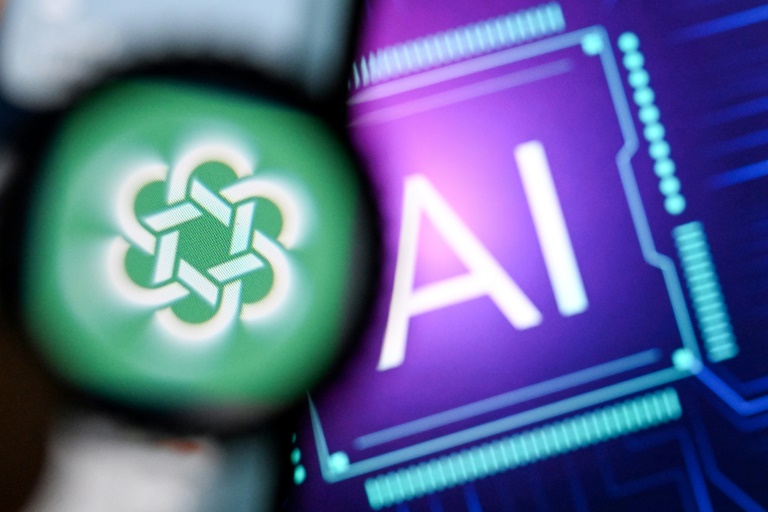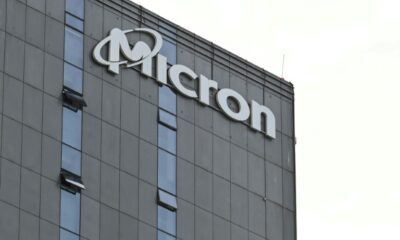After the earthquake of ChatGPT’s phenomenal success a year ago, Silicon Valley investors have gone into overdrive with artificial intelligence, looking for the newest blockbuster idea in an ocean of hype and overpromising.
OpenAI sparked a generative AI craze with ChatGPT, which can pen stories, create pictures, write computer code and more from simple text prompts.
Stung by the struggles of cryptocurrency and other faded Silicon Valley fads of recent years, venture capitalists have quickly doubled down on AI, a new promised land in the never-ending quest for big tech riches.
For the big investors, “if it’s not AI, it’s not worth it,” Denis Barrier, co-founder of venture capital firm Cathay Innovation told AFP after meetings with several investment fund handlers.
“Funds are looking to make big moves,” Barrier said.
“And that’s pretty unlikely outside AI in the next few years.”
While layoffs and budget tightening became routine at tech companies last year, startups in the AI sector raised nearly $50 billion from investors, according to market tracker Crunchbase.
In that first wave of the AI gold rush, investment focused heavily on companies building the large language models that make generative AI features possible.
A record-high $29 billion was invested in generative AI in 2023, according to PitchBook.
– ‘Cost lives’ –
But building foundational models from scratch costs a fortune in computing needs and most of that money can only come from the richest of backers — such as Google, Microsoft, Amazon and Nvidia — and flow to a chosen few such as OpenAI and Anthropic.
This week Mistral, a buzzy French startup building its own models, secured a new investment from Microsoft after already getting financing from some of Silicon Valley’s richest investors, including Nvidia and Andreessen Horowitz, one of the sector’s most aggressive firms.
“We believe that any slowdown in AI will cost lives,” wrote the rock star venture capitalist Marc Andreessen last year in his “Techno-Optimist Manifesto.”
But scared off by the cost of entry, many venture capitalists have turned their attention to more narrowly focused AI startups that could shake up banking, healthcare, energy and other sectors.
Cathay recently invested in French biotech startup Bioptimus, which is putting AI to work creating new drugs.
While seeking out promising firms, Cathay looked at engineering skill, data access, cost controls, and an ambition to transform a sector, Barrier explained in his downtown office overlooking the San Francisco Bay.
“You have to have a little faith,” Barrier said.
“An application that works can catch on like wildfire; you have to be there first!”
– ‘For real’ –
Loora, an Israeli startup that uses generative AI to teach English, raised $12 million last week.
Loora’s mobile applications teaches English through conversation and has won more than 15,000 customers who have signed up for about the same price as a Netflix subscription.
Simply embracing AI is not what is going to attract the investors, Loora co-founder Roy Mor told AFP from his headquarters in Tel Aviv.
What companies need is more of the right data that will improve the app and improve user experience, he said.
“I think the use cases where AI really brings value, where it solves problems, are not yet widespread,” he said.
For now, the most promise for returns on investment are from the business world, and many startups are focusing there.
Alembic, a specialist in large-scale data analysis — the heart of AI — has just raised $14 million.
Using techniques originally designed to track health data during the coronavirus pandemic, the startup helps determine the effectiveness of marketing campaigns.
Former Walt Disney Studios chairman and DreamWorks co-founder Jeffrey Katzenberg, is a founder of WndrCo, a VC that is backing Alembic.
“AI is for real,” the former Hollywood bigwig told AFP.
“It’s not an evolution, but a revolution, a positive revolution.”

 Business4 months ago
Business4 months ago
 Business5 months ago
Business5 months ago
 Events3 months ago
Events3 months ago
 People4 months ago
People4 months ago
 Events6 months ago
Events6 months ago
















